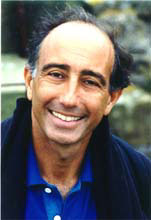 Despite great advances in the treatment of infectious epidemics, trauma and critical care, modern medicine is failing in its mission. Childhood mortality rates around the world are rising and the major medical challenge of the twenty-first century--decreasing the burden of chronic illness and disability--is not being met. The reason lies in the faulty blueprint used to guide contemporary health care.
Despite great advances in the treatment of infectious epidemics, trauma and critical care, modern medicine is failing in its mission. Childhood mortality rates around the world are rising and the major medical challenge of the twenty-first century--decreasing the burden of chronic illness and disability--is not being met. The reason lies in the faulty blueprint used to guide contemporary health care.
Conventional Western medicine is organized around the treatment or prevention of specific diseases, with each disease seen as a separate and independent entity. This approach no longer serves a useful purpose. Experts of the World Health Organization, meeting in the Dominican Republic in September, 1997, expressed the view that trying to deal with each of the various diseases that kill young children is futile. The factors responsible for disease must be dealth with. Most fatal illness results from a combination of poor nutrition and poor environmental hygiene. They expressed the view that reduction of childhood mortality can only be achieved by an integrated management approach, improving nutrition and environment so that many diseases are dimished or eliminated at the same time.
Experts in the problems of aging have expressed a similar view. The longer a person lives, the more diseases she develops and the more drugs she takes. Adverse reactions to prescription drugs have become the fourth leading cause of death in the United States, killing over 100,000 people a year, more people than are killed by accidents of all types. The immense number of medi-cal prob-lems associated with un-healthy aging cannot be addressed by attempts to prevent and treat the specific diseases that appear with increas-ing frequency as people age. Prevention and treatment must strengthen the resistance of the person in ways that allow a multitude of different disease entities to diminish.
This is an old wisdom, shared by all ancient systems of healing. Traditional healing systems approach sickness as a problem of balance and relation-ship, the result of dishar-mony between the sick person and his or her environ-ment. For the traditional healer, the "dis-ease" itself has no independent reality. The healer's job is not to identify and treat the disease entity, but to characterize the disharmonies of each particular case, so that they can be cor-rected.
Integrated Medicine couples the ancient perspective that health is balance with the powerful tools of modern biological science. It embraces the best of conventional and alternative therapies, but is more than just a mixture of therapeutic techniques. It is a process of medical practice that acts to heal the person rather than just treat the disease. A person has social relationships, beliefs and feelings, memories and expectations, a sense of identity, a daily pattern of eating and drinking, exercise and rest, hygienic habits, an occupation, an environ-ment, and innate systems for detoxi-fica-tion and repair. It is these aspects of the person--the common components of his or her life--that Integrated Medicine attempts to support, applying strategies that are scientifically validated. Learning how to recog-nize, understand and respond to the impact of the common components of life on health and illness is a challenge of such magnitude for conventional medicine that it has been called a paradigm shift. Unfortunately, medical doc-tors are large-ly unprepared for this paradigm shift, frequently failing to recog-nize the psychological or social needs of pa-tients or to meet "essential core compe-tence" in clinical nutrition. It is the goal of the Foundation for Integrated Medicine to help the public and health professionals acquire the knowledge necessary to move from a disease-centered to a person-centered model of health care.